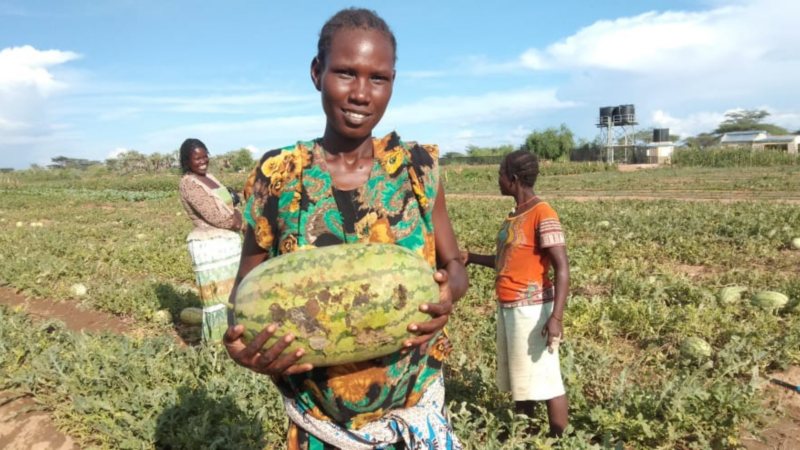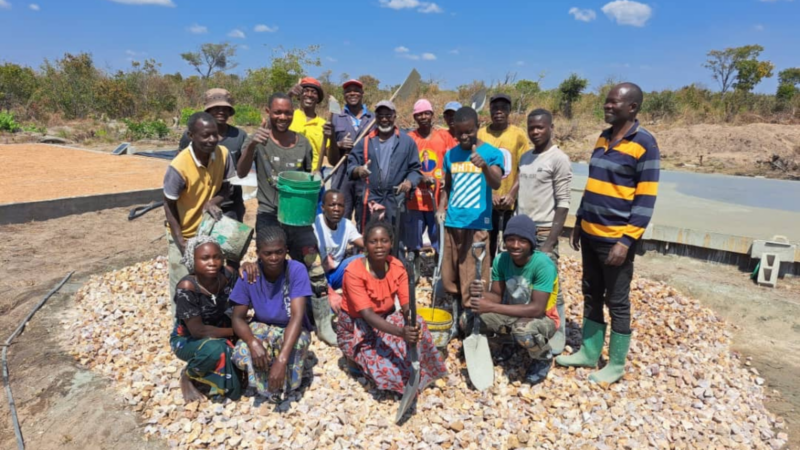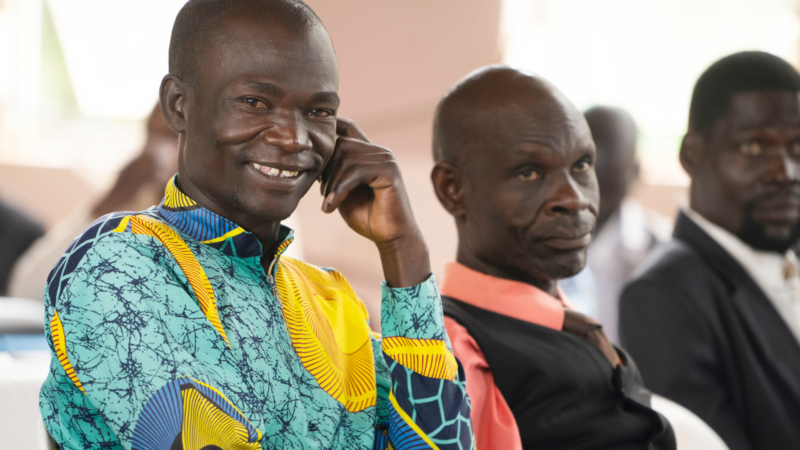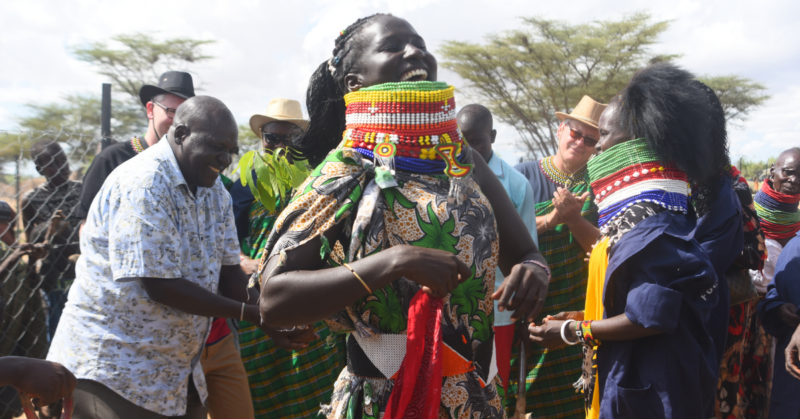In Turkana, Kenya, thousands of people have been trapped in dire poverty and famine. But in partnership with a Kenyan church and our faithful Allies, we have planted a self-sustaining farm in the desert that has brought hope to hundreds of previously hungry families. Want to learn more about how to help people suffering from the drought in Kenya?
Right now, Bright Hope is in the middle of a crucial campaign to support the expansion of the Natoot Farm in drought-ridden Turkana, Kenya.
The Sweet Taste of Fruit in Turkana: Both Literally & Figurately
About a year ago, I wrote about the world hunger problem and what we were doing about it in Turkana, Kenya. I am pleased to report that the community farm there is doing well and expanding. Last year, the number of farmers grew from 80 to 137, and we developed an additional 1.5 acres of land. We dug two more boreholes in 2023 and will soon be developed to fully irrigate the entire 19 acres of the expanded farm.
In November I visited the farm after not being able to travel because of the global pandemic. I knew we had achieved technical success but I wanted to get a true sense of how the farmers were feeling. For example, did they think their lives had improved? How did they think about agriculture when the culture had been herding goats for decades and decades? How has our church partner played a role in their lives? Did young people see farming as a real alternative? In what specific ways have the families benefited from the Natoot Farm? As a project developer, I had a million questions on my mind. But by the end of my trip, I felt confident that substantial changes had taken place. Here are my personal observations from my time with the farmers at the Natoot Farm.
Farm Life in Natoot
First, many farmers expressed authentic gratitude and thankfulness for our help. They had considered themselves lost people and frankly, outsiders. They had faced extreme hunger. And historically, they had only received short-term answers to their problems but no guidance as to how to change their lives. Now, we (Bright Hope) have a relationship that has blossomed and a level of trust to achieve even more in the future.
Second, the farmers spoke in terms of optimism versus pessimism. They now view agriculture as a viable income-generating activity, not something hypothetical. Truly, they have reaped what they have sowed. Through sustainable farming, they have generated extra income to pay for school fees or other household expenses. Equally important, while learning to grow various crops, they faced trials like unwanted pesticides, flooding, poor soil conditions and fluctuating market pricing. Now, they understand the complexities of farming on arid land caused by the drought in Kenya.
Third, their self-esteem had grown so much that they even carried themselves differently. Long-faced expressions gave way to cheerful ones. We started a literacy class to teach farmers to read, write, and do simple math so they could conduct transactions with customers without getting cheated. What we didn’t know was how confident they would become as they grew in literacy and advocated for themselves. At first, they felt quite anxious to show us what they had learned and practice their English with us. However, the power and benefits of learning have changed their mindset.
Fourth, a deep sense of community now exists on the farm. All the farmers tending to their plots spend significant hours together. Throughout the day, 10-20 farmers will often work at a time. The farm has become a place of fellowship, like a local community center. In many ways, I could describe the farm as like a second home for many. I saw camaraderie and a sense of caring for each other. We even heard stories of farmers helping each other during times of struggle. Really, I couldn’t be prouder of them as if they were my own children.
How Can You Help the Hungry During This Drought in Kenya?
The goal of sustainability is key in our development work at Bright Hope. We strive to ask ourselves continually, “What happens to the people we are helping if we suddenly have to leave?” During my visit, I was served a slice of a sugar baby watermelon grown on the farm and it was the sweetest I’ve ever tasted. I left with a good feeling there would be a lot more fruit grown here.
Development work takes time, and this project is no different. It’s time to give a big thank you to all our Allies who have patience and appreciate this point. I wish I could send you a slice of watermelon so you could enjoy the fruits of your generosity.
The Natoot Farm has become a beacon of hope in this desolate region of Kenya. Hungry families now have hope! Now is the time to shine that light even brighter so that 150 new families can each receive a plot of land and change the trajectories of their lives!
God can use you to plant seeds of hope in the next generation in Natoot Village, yielding the sweet fruit of sustainability. Please prayerfully consider how you can participate in the transformational ministry of the Natoot Farm and change families for generations to come.





